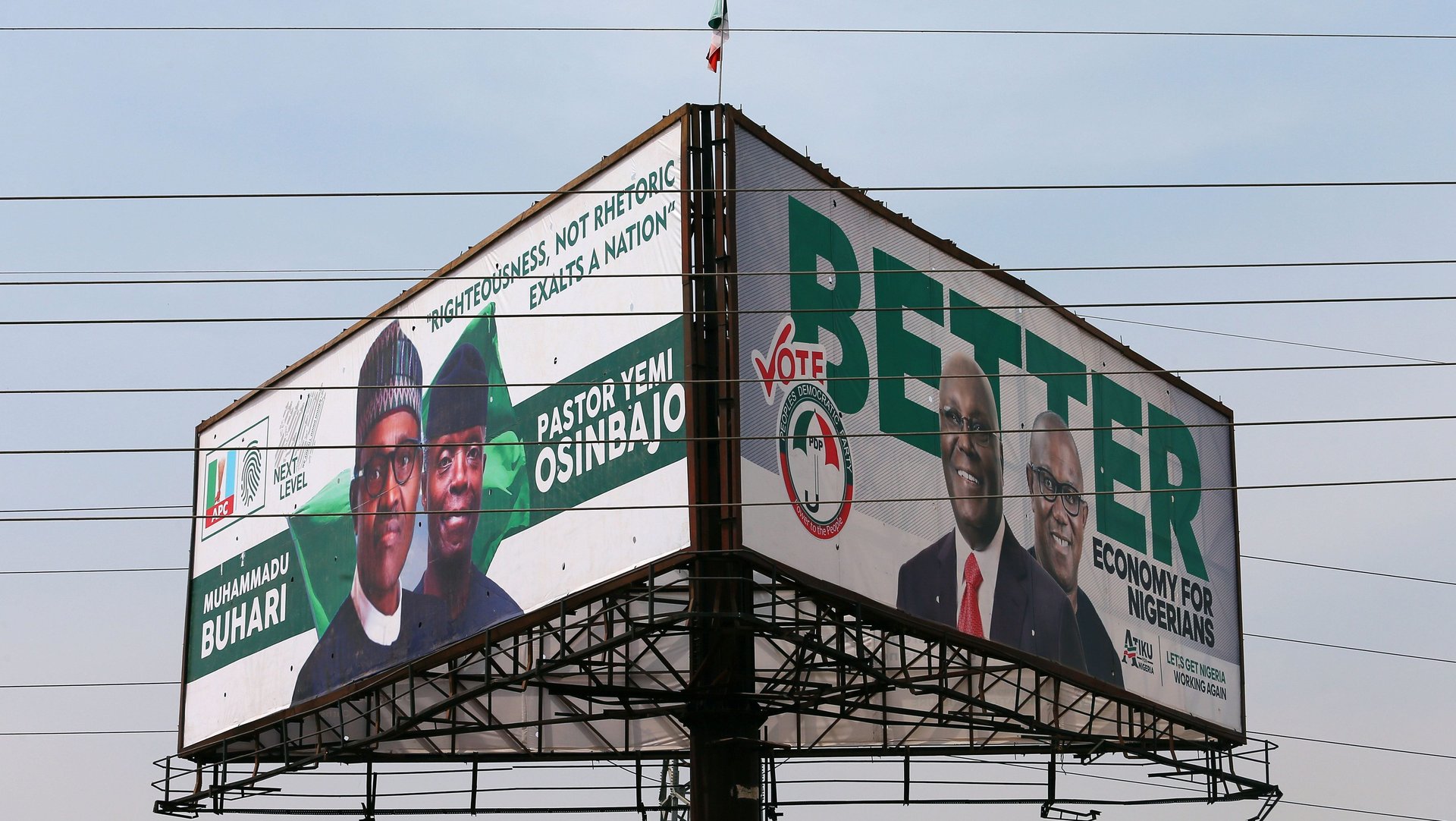Nigerian politicians are adopting new campaign tactics to reach voters directly
There are more than 70 aspirants in the running as Nigeria goes to the polls for presidential elections next week (Feb. 16). But, in reality, it’s a two-horse race between incumbent president Muhammadu Buhari of the All Progressives Congress and Atiku Abubakar of the opposition People’s Democratic Party.


There are more than 70 aspirants in the running as Nigeria goes to the polls for presidential elections next week (Feb. 16). But, in reality, it’s a two-horse race between incumbent president Muhammadu Buhari of the All Progressives Congress and Atiku Abubakar of the opposition People’s Democratic Party.
While the dominance of the major parties remains unchanged since the last general elections, some of their methods have.
In the past, campaigning revolved mainly around holding major rallies, spewing vague promises and spending heavily on advertising—via billboards, posters and traditional media. While those elements still remain, there is growing evidence that the leading parties and their candidates are adopting new, Western-style campaign tricks.
The current election cycle has seen both parties make coordinated attempts to connect directly with voters and canvass for support with a mix of door to door visits, phone calls and “ask me anything” sessions on social media. These tactics have long been a feature of American and European politics, but have hardly featured in Nigerian elections before now.
The major parties are also taking the challenge of dominating online conversations seriously. As Quartz Africa has reported, there’s been a recent spike in new Twitter accounts from Nigeria, fueled by operations by leading parties to spread legitimate and, at times, questionable campaign messages in a desperate push to reach younger voters.
These changing campaign techniques could be linked to improvements recorded by Nigeria’s electoral commission (INEC) in making elections more secure. With voters’ cards now electronically verified as well as growing focus from civil society groups and a more expressive electorate closely monitoring vote counting at polling units across the country, it has essentially become harder to rig elections. It means candidates have much lower margins of error with their campaign messaging and are increasingly looking into ways to connect directly with voters.
But despite INEC’s progress, Nigeria’s electoral system still remains far from perfect: “vote buying” tactics have been brazen during state elections over the past year while the electoral commission has faced challenges printing and distributing voter cards in a timely fashion. As elections are set to hold in nearly 200,000 polling units across the country, it is likely more flaws, ranging from voting material shortages to voter intimidation, could surface again.
As ever, the threat of electoral violence also looms large. But instigating malpractice or violence will come at a price for politicians as both the United States and United Kingdom have threatened measures against perpetrators including travel bans, assets freezes and prosecution under international law.
Sign up to the Quartz Africa Weekly Brief here for news and analysis on African business, tech and innovation in your inbox